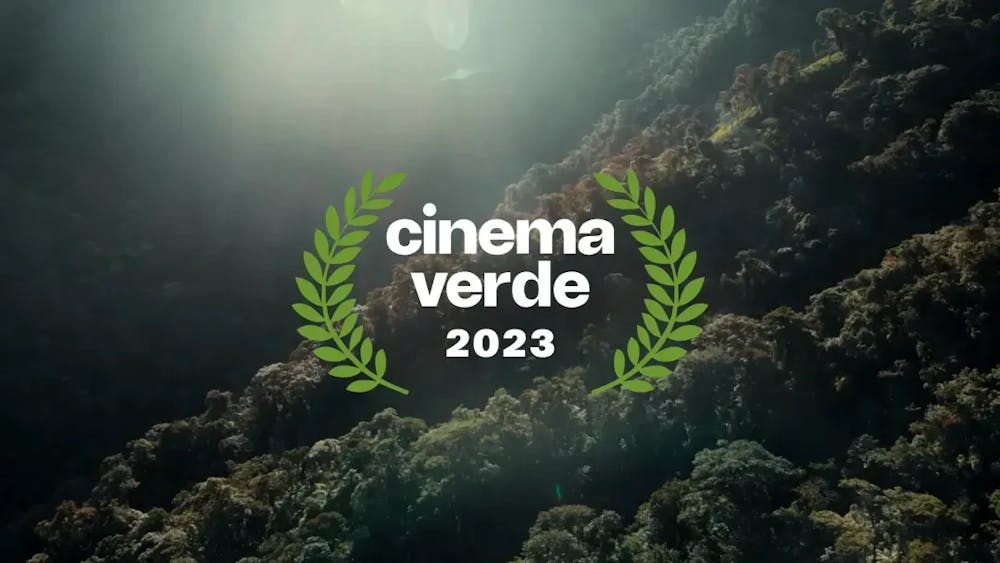Trish Riley knows the dangerous reality of the climate crisis, so she lives by one motto when it comes to learning about the environment: Party like there’s no tomorrow.
The founding director of Gainesville-based film festival Cinema Verde and former environmental journalist created the environmental film and arts festival in 2010 to showcase environmental films and share information about the climate crisis in a new way.
People will only read about the climate crisis if they already care about the issue, she said. Learning about its reality can be frightening to audiences, so Riley’s goal is to make it fun in addition to being informational.
“It is scary, and there may be no point, but how can you not try?” she said. “Nature is so beautiful. So wonderful. It's so important to us. I can't quit trying to let people know and get them to protect it.”
From Feb. 9-14, Cinema Verde is hosting the 14th annual Environmental Film and Arts Festival. This is the third year the festival is being held virtually. The festival features 70 films, Q&A sessions with filmmakers and live-streamed discussions with directors.
Showcased films include “Capturing the Fire” by Samantha Marlowe and Frances Elliott, which explores the effects of fires in Australia, and “Mamody, The Last Baobab Digger” by Cyrille Cornu, which spotlights residents of the Ampotaka village in Madagascar.
During the livestream, viewers are watching along with their friends, conversing about the films and hearing from the directors of the festival’s featured films.
“The directors are there, and they can ease your fear,” Riley said. “If you replace fear with knowledge, you can do a lot more with it.”
These discussions with directors have become a highlight of the festival for Riley, she said.
“The best part is getting to know the people who do this for a living,” Riley said. “Instead of making big bucks with their skills, which they could do, they instead decide that they should do something that's important for the rest of the people.”
Cinema Verde’s technical communicator, 21-year-old UF English senior Sebastian Stiefel, also feels inspired by the directors’ dedication to their work, he said.
“Everyone has very different approaches to viewing the world,” Stiefel said. “But it's very nice to see it all coalesce into one goal, which is environmental change.”
Although it’s a big task, Stiefel wants to do environmental policy work and change the world. Film is a great medium for achieving this, he said.
“There's just something watching the film does; it puts you in that place, characterizes the people,” he said. “It allows us a narrative and a story to be strung through visual means, which may help people realize things better.”
The festival’s graphic and web design intern, 22-year-old UF architecture senior Thompson Draper, also sees the impact the film festival has on the Gainesville communities, he said.
Draper feels rewarded when he sees graphics he has created for the festival on flyers around town and hears friend groups talk about the festival. His personal relationship to nature is important to him, he said, so he’s focused on spreading awareness about its issues.
“Nature is one of my favorite things,” he said. “Whenever I feel bad, I like to go outside and it always makes me feel better.”
Visual media is important to understanding the climate crisis because it combines all different learning styles, such as visual and audio learning, Draper said.
The festival also appeals to different film genres, according to Riley. It features documentaries, comedies, fictional narratives, music videos and even dance programs. Variety allows them to reach a wider audience, which is helpful in turning viewers from audience into activists.
Contact Lauren at lwhiddon@alligator.org. Follow her on Twitter @LaurenWhid.
Lauren Whiddon is a UF journalism senior and the multimedia editor. When she's not writing she is updating her Letterboxd account or reading classic literature.






